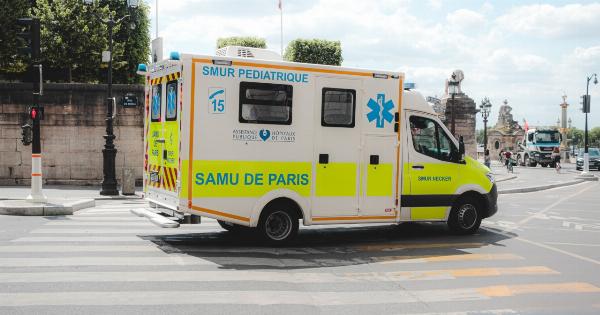Hospital stays can be expensive, and it is important to know what your health insurance policy covers before you end up with a bill you can’t afford.
In this article, we will dive into what your health insurance policy pays for during hospital stays and what you can expect to pay out of pocket.
What Does Your Health Insurance Policy Cover During Hospital Stays?
When it comes to hospital stays, there are a few things that your health insurance policy will typically cover. These may include:.
1. Inpatient Care
If you are admitted to the hospital, your health insurance policy will typically cover the cost of your inpatient care. This may include things like:.
- Room and board
- Nursing care
- Meals
- Medications
- Medical supplies and equipment
Keep in mind that your health insurance policy may have limits on the amount of coverage for inpatient care, so make sure you know what those limits are before you go to the hospital.
2. Outpatient Care
Even if you do not require inpatient care, your health insurance policy may still cover certain outpatient services you receive during your hospital stay. This may include:.
- X-rays and other imaging tests
- Blood tests and lab work
- Rehabilitation services
Again, your health insurance policy may have limits on the amount of coverage for outpatient care, so make sure you know what those are as well.
3. Emergency Services
If you go to the emergency room and are admitted to the hospital, your health insurance policy will typically cover your emergency services. This may include:.
- Emergency transport
- Emergency room services
- Diagnostic tests
- Emergency surgery
Once again, make sure you know the limits on your coverage for emergency services before you go to the hospital.
What Does Your Health Insurance Policy Not Cover During Hospital Stays?
While your health insurance policy may cover many aspects of your hospital stay, there may be other expenses that are not covered. These may include:.
1. Deductibles and Co-Pays
Most health insurance policies include deductibles and co-pays, which are amounts you are responsible for paying before your insurance coverage kicks in.
If you have a high-deductible health plan, you may be responsible for paying a large portion of your hospital bill out of pocket.
2. Room Upgrades
If you want a private room or a room with extra amenities, your health insurance policy may not cover the additional expense. Make sure you are aware of what types of rooms your insurance policy covers before you choose your accommodations.
3. Non-Essential Services
If you choose to receive non-essential services during your hospital stay, such as cosmetic procedures or luxury spa treatments, your health insurance policy may not cover these costs.
How to Avoid Surprise Medical Bills During Hospital Stays
Even if you are aware of what your health insurance policy covers during hospital stays, there may still be unexpected costs. To avoid surprise medical bills, here are a few things you can do:.
1. Verify Your Insurance Coverage
Before you go to the hospital, contact your health insurance provider and verify what services and expenses are covered under your policy. This can help you avoid any unexpected expenses that may arise.
2. Choose In-Network Providers
If you choose to go to a provider that is not in your health insurance plan’s network, you may be responsible for paying a larger portion of your hospital bill. Try to choose in-network providers to keep your costs down.
3. Ask for Itemized Bills
When you receive your hospital bill, make sure it is itemized. This can help you identify any services or charges that were not covered by your health insurance policy.
Conclusion
Understanding your health insurance policy during hospital stays is crucial to avoiding unexpected medical bills. Make sure you know what your policy covers and what it does not, and take steps to avoid any surprise expenses.


























